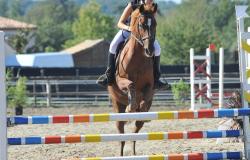Russia announced on Monday the end of armed clashes in Dagestan, in the Caucasus, where attacks the previous evening against Orthodox churches and at least one synagogue left 19 dead, including 15 police officers and four civilians.
• Read also: ON VIDEO | Deadly attack on synagogue and Orthodox churches in Russia
The “anti-terrorist” operation carried out in the region ended Monday morning and five attackers were “liquidated”, announced the Russian Anti-Terrorism Committee. “Their identity has been established.”
However, it was not immediately clear whether other attackers had escaped. No information on their motivations or their identity has filtered out and the Kremlin has not yet reacted.
This series of attacks described as “terrorist” by the Russian authorities comes three months after the attack claimed by the jihadist organization Islamic State (IS) committed at Crocus City Hall, a concert hall in the suburbs of Moscow, and which had left more than 140 dead, reviving the threat of Islamist terrorism in the country.
Sunday’s attacks, which were not immediately claimed, took place in Makhachkala, capital of Dagestan, and the coastal town of Derbent.
A Russian region with a Muslim majority neighboring Chechnya, Dagestan was the scene of repeated armed clashes with jihadists in the 2000s, like a large part of the Caucasus. This Islamist insurgency was put down by Russian forces after many years of combat, and Russia was no longer used to this type of attacks.
The attacks on Sunday targeted “two Orthodox churches, a synagogue and a police checkpoint,” according to the Russian Investigative Committee, which opened an investigation for “terrorist acts.”
“Fifteen law enforcement officers were killed, as well as four civilians, including an Orthodox priest,” investigators announced, revising the previous toll upwards.
The chief rabbi of Russia, Berl Lazar, denounced a “vile crime”, guided by the desire to “kill as many innocent people as possible”.
“War is coming”
On Monday, the leader of Dagestan, Sergei Melikov, visited the synagogue in Derbent, targeted by the attackers. In a video published by his services on social networks, we see him walking inside the building, traces of blood still being visible on the ground.
Jewish representatives, including the Russian Jewish Congress, said a second synagogue was also burned during the attacks.
“We know who is behind these terrorist attacks and what goal they are pursuing,” Melikov said assuredly on Telegram, without further details.
“War comes to our homes too. We felt it, but today we are confronting it,” he added, seeming to want to establish a link with Ukraine.
The Russian authorities, without ever providing evidence, have already accused Kyiv of having played a role in the bloody attack, claimed by ISIS, on the Crocus City Hall.
Armed individuals also opened fire on Sunday against a vehicle carrying police officers, injuring one of them, in Sergokala, a village located between Makhachkala and Derbent, according to the local Interior Ministry.
Authorities have not clarified whether these individuals were the same as those who carried out attacks in Makhachkala and Derbent or not.
Three days of mourning
Local authorities in Dagestan have declared three days of mourning, from Monday to Wednesday.
In October, riots hostile to Israel broke out at Makhachkala airport.
A crowd of men had invaded its tarmac, amid tensions across the world linked to the conflict between Israel and the Palestinian Islamist group Hamas, when a plane from Israel landed.
Russia has been targeted on multiple occasions by attacks and jihadist attacks, such as the attack on Crocus City Hall and the Islamist rebellion of the 2000s in the Caucasus, a movement born from the first conflict against separatist Chechnya in 1994-1996.
Last weekend, several ISIS members were killed after taking two corrections officers hostage in a prison.
The jihadist organization also threatened Moscow because of its support for the Syrian regime of Bashar al-Assad.






